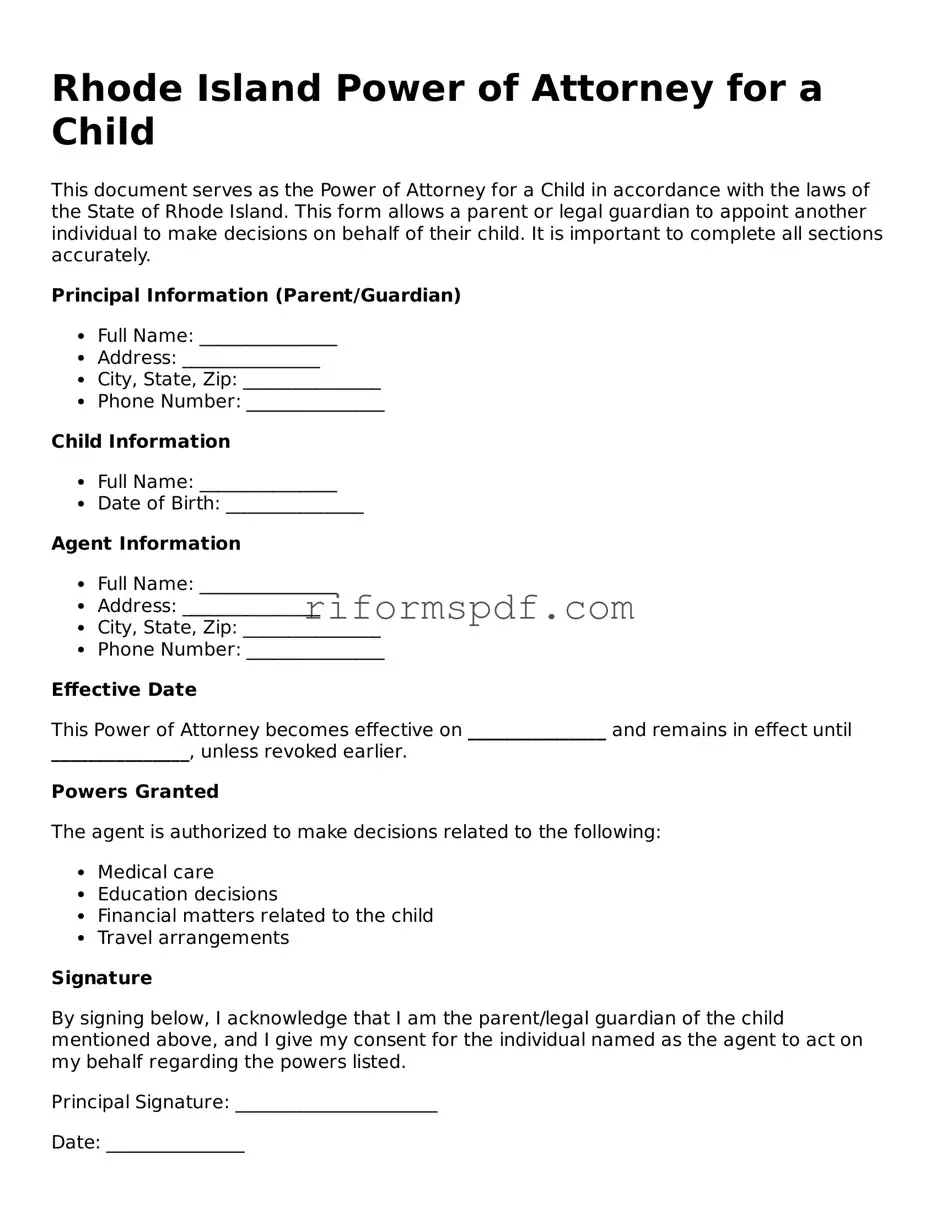Printable Power of Attorney for a Child Form for Rhode Island
The Rhode Island Power of Attorney for a Child form is a legal document that allows a parent or guardian to grant temporary authority to another adult for the care and decision-making of their child. This form is particularly useful in situations where the parent cannot be present, ensuring that the child’s needs are met. Understanding how to properly complete and use this form can provide peace of mind for families navigating challenging circumstances.
Launch Editor

Printable Power of Attorney for a Child Form for Rhode Island
Launch Editor
Finish the form now and be done
Edit Power of Attorney for a Child online and skip the paperwork.
Launch Editor
or
⇓ PDF Form
